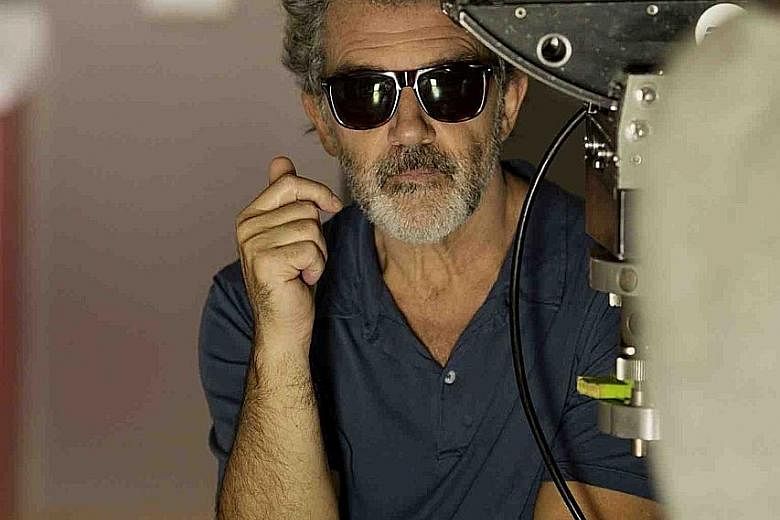REVIEW / DRAMA
PAIN AND GLORY (M18)
114 minutes/Opens today/ 4 Stars
The story: Film-maker Salvador (Antonio Banderas) is in a bad state. It has been years since he has made a good film. His poor physical state does not help - he is beset by throat and back problems. But when he is asked to appear at a special screening of a film he made 32 years ago, he is roused to leave his Madrid apartment in search of the actor Alberto (Asier Etxeandia), with whom he had a falling-out, so they can present it together. In a series of flashbacks, young Salvador and his mother Jacinta (Penelope Cruz) are shown moving into a village where people live in homes carved into the earth. Banderas won the Best Actor award at the Cannes Film Festival this year and the film is Spain's entry for Best International Feature film at the Academy Awards.
"My life revolves around my spinal column," says Salvador with bitter humour while reciting a litany of ailments, chief of which is back pain. That ache in his body matches the one in his mind - he is plagued by guilt over his mother's passing and in a state of mourning over the death of his creative self.
This is Spanish film-maker Pedro Almodovar, now 70, turning the lens on himself. What emerges is a portrait of an artist living life backwards - old films, old loves and old enmities are resurfacing.
And like the good Catholic boy he used to be, the one who was set on the path to priesthood, this is a memoir filled with confession and self-flagellation. Almodovar, thinly disguised as Salvador, punishes himself for betrayals and broken promises, the friends he has let down and the potential he has squandered.
It would all be unbearably maudlin and self-regarding if not for Banderas' wry performance. Even as he is wracked with pain, both in his soul and spine, there is something in his expression that says, "Yup, I probably had it coming," that undercuts the self-pity.
Slowly, what feels like a series of disconnected vignettes set over the course of a lifetime shapes up into something resembling a throughline.
It begins in the past, in Salvador's boyhood village of caves. In one moment - because of a peep at a handsome house painter taking a bath - a jolt of erotic electricity surges through that young Salvador's body. The boy cannot grasp its significance, but the older Salvador can. That electric charge will carry him far from the village, into Madrid and the world of cinema.
In remembering that moment, the older Salvador, dulled by drugs and regret, can begin anew.


